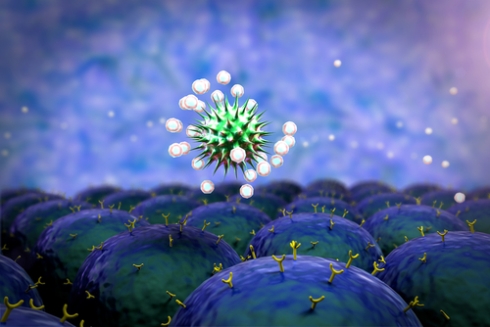Spotlight on: Systems biology

The Biologist Vol 62(3) p30-31
The aim of systems biology is to understand vastly complex biological systems in a way that enables us to model and predict how they will behave. It often uses mathematical and computer modelling to define the rules and principles that govern and regulate systems, ranging from microbial cells to organs and even entire ecosystems.
Why is it important?
Systems biology is helping our understanding of complexity itself, not just the principles that underlie complex systems. Systems biologists aim to develop a quantitative as well as a conceptual understanding of biological phenomena, which allows the prediction and accurate simulation of extremely complex processes such as the immune response. The ability to model and predict what happens to systems under certain conditions is already having a profound effect on how theories are tested.
What exactly does systems biology involve?
In some ways, systems biology is more easily defined by what it isn't: it doesn't take an element of a living system and try to control other variables in order to study it. Systems biology uses information and data from a wide range of sources to build as full a picture as possible, with computer modelling at its core to understand how everything in such an immensely complicated system is related.
Although a systems approach can be applied to many areas of the life sciences, it is often focused on combining genomic, proteomic and other molecular data to understand entire cells or groups of cells.
How do I get into it?
Systems biology is a relatively new field, but there are around 15 universities with dedicated systems biology departments or research groups in the UK, and hundreds across Europe and the world.
Many opportunities are currently rooted in academia and fundamental research at PhD and postdoc level. In the UK, there are a number of systems biology master's degrees available, many of which focus on bioinformatics and computing. Undergraduate degrees in systems biology are less common, but are available, especially in the US. Such courses often have a molecular biology focus and may be combined with a related subject such as bioinformatics or computational biology.
Systems biologists are also employed in hospitals, the pharmaceutical industry, biotechnology companies and cancer institutions, where analysis of huge amounts of experimental data is required.
Where can I find out more?
The International Society for Systems Biology and the International Society for Computational Biology both provide information on systems biology careers, research and conferences.
 First person: Stephanie Hays
First person: Stephanie Hays
Profession: PhD student, department of systems biology, Harvard
Qualifications: BSc in biochemistry; master's in biophysics
Interests: Photosynthetic microbial communities, symbiosis, science education
What does your research involve?
E. coli bacteria are often optimised to produce biofuels or useful medicines or chemicals. But the E. coli still need to be fed sugars to grow, and growing that sugar can take up space needed to grow food.
I am trying to engineer photo-synthetic microbial communities of cyanobacteria and E. coli. The cyanobacteria capture solar energy and provide sugars to the culture. The aim is to produce E. coli that do not need to be fed sugar, which would mean you're not competing with land that could be used to grow food. The bacteria could be grown anywhere from out at sea to a desert, as long as you had sunlight and a closed environment.
What else is being done in the systems biology department at Harvard?
I work in Pamela Silver's lab, where there's a very broad range of work going on, from development of artificial human chromosomes to carbon-fixing cyanobacteria to work on gut proteomes. The thing that binds all the work is that they combine systems biology and synthetic biology.
What does a typical day involve? Is it mainly lab work or computer modelling?
I'm definitely a wet-lab person. The system I work with is not well understood – we have nice models of E. coli and cyanobacteria, but when you put them together, they do things you wouldn't expect. I'm hoping to move to a more computational model when we have more data.
How did you get into systems biology?
From an early age I've liked the idea of symbiosis – how one thing depends on another. It's so complex and hard to explain how that works. I also wanted to do something that is really quantitative – I didn't want to be one of those scientists who just believe what they think is going on without having the solid numbers and data to really back it up and understand.
Can you define systems biology?
In our department, we have tried to define it a bunch of times. It's interdisciplinary, using everyone's expertise. Instead of looking at individual components in isolation, you try to look at an entire system, whether that be all the interactions between proteins in a cell or in entire ecosystems. It's also about better measurement of experimental systems – not just taking a cell count, for example, but measuring metabolics, proteomics, the secretions of the cells into the media – to get a more comprehensive picture.
Where do you see the field going in the future?
Quantitative modelling can be applied everywhere. You can apply it to medicine or you can just apply it to research if you want to understand the biology of something. I'd say the discovery of new antibiotics will be one area where it will be particularly useful.


